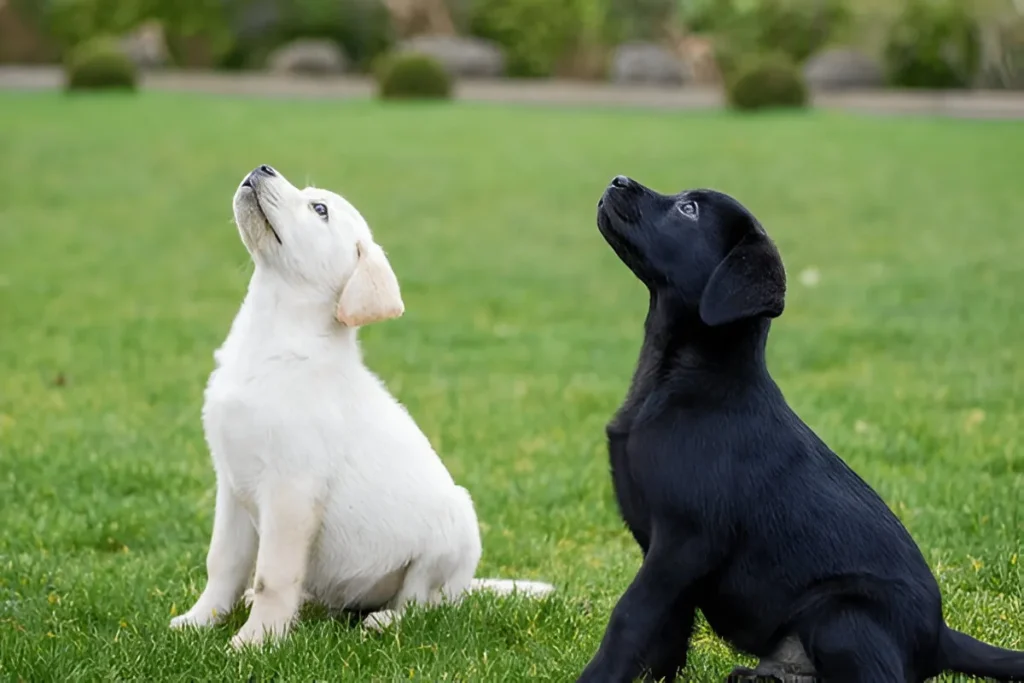
Can’t wait to see your puppy as a trained and safe pet? Dog training takes time because it is a slow process. You invest in a month or six-month program and want to see instant results. Your dog can learn basic commands in this period but can’t be completely trained.
If you’re a new dog owner in Chicago, you will ask this question in your first interaction with a trainer: How long does it take to see results? The short answer is that depends on many factors such as breed, age, temperament, and training method.
In this article, we will let you know the approximate puppy training timeline in Chicago. We will also discuss how a perfect training academy like Prestige Dog Training can speed up the whole process.
Why Should You Know the Puppy Training Timeline in Chicago?
You will expect a lot when you start training your puppy, especially the timeline. Every dog has a different nature and learning time so training time will differ. The puppy training timeline in Chicago or anywhere is not constant for all. On average, most puppies start to show noticeable behavior progress within 4 to 6 weeks of consistent training.
General Timeline Overview
To give you an idea, we will provide you with a general timeline:
- Weeks 8-10: Puppies can start learning basic commands like “sit,” “stay,” and “come.” However, attention spans are short.
- Weeks 10-16: This is a critical socialization window. You may start to see improvements in leash walking and housebreaking.
- Weeks 16-20: In this time, more consistent responses to commands. Some behavioral corrections start taking effect.
- Months 5-6 and beyond: Reinforcement of previously learned skills. You can introduce more complex behaviors such as off-leash recall or impulse control at this time.
Remember, Chicago is an urban city, and dogs have different distractions like traffic noise, other dogs, and people. These distractions and other factors can shorten or lengthen the time.
Key Factors Affecting Training Results

As we discussed above, the puppy training timeline in Chicago is not the same. Many factors determine the speed of dog training results:
Age and Breed
Puppies are easier to handle than older dogs. You can teach them basic commands and complex habits easily, but you need more patience. Breeds known for intelligence and eagerness to please, like Border Collies, Labradors, and Poodles, may learn commands faster. In contrast, independent breeds may take a longer time to learn.
Consistency
Consistency is the key to successful training of a puppy. They cannot learn quickly, you will practice a command many times. Still, if a puppy does not get your point, you cannot punish it. If you set a daily routine of practice, puppies can learn quickly.
Trainer Feedback
The feedback of other clients for your trainer also determines the time taken for the results. An experienced trainer knows how to teach the basic commands safely and timely. A certified trainer not only teaches your dog but also coaches you on how to interact with your pet to reinforce the training at home.
Training Methods
Training methods matter a lot in knowing the timeline of puppy training in Chicago. Some people think that harsh methods will lead to quick learning, but it is a wrong idea. Positive reinforcement, clicker training, and socialization-based methods led to faster and more lasting results.
Behavior Progress: What to Expect and When
Every dog owner takes motivation from behavior progress. You should track the progress to manage your expectations from the trainer. Here, we have a step-by-step progress that puppies follow usually.
Housebreaking and Crate Training (2–4 weeks)
Usually, puppies start to learn the concept of house training within 2 to 4 weeks. During this time, you should be consistent in scheduling potty breaks by using positive reinforcement.
Basic Obedience Commands (3–6 weeks)
Normally, puppies learn common basic commands in the first month of training. These commands include “sit,” “stay,” and “leave it”. However, mastering them in different environments with distractions can take up to 2–3 months.
Leash Training (4–8 weeks)
Every dog owner wants to teach leash training as soon as possible because without it they cannot control their pet in Chicago’s public places. Expect gradual improvement over 1 to 2 months, especially if daily walks are part of the routine.
Socialization Skills (Ongoing)
Socializing with other dogs and people is not a one-time training. It needs ongoing exposure and monitoring. For this skill, you should focus on yourself and talk about your trainer.
The Role of Professional Trainers in Chicago
A professional and expert trainer can speed up the training process. In Chicago, the expertise of a professional dog trainer can make a major difference. A good trainer not only teaches your puppy but also teaches you how to support and maintain the training at home.
They help control distractions, address specific behavior issues, and adapt strategies to suit your dog’s personality and needs. They can increase the dog learning curve and prove it through their skills.
How to Stay on Track: Tips for Faster Results

You cannot get results after giving training in one or two classes. You should be consistent, and patient in the training journey of your puppy. Never be harsh with the trainer and puppy because puppies can make mistakes and it is part of their journey.
Here’s how you can stay aligned with your puppy training timeline in Chicago:
- You should practice the commands and complex habits daily. It will help learn quickly.
- You should be consistent because your puppy is learning new things daily.
- Take your dog to different environments so that it can be exposed to different signals, sounds, and sights.
- Do not confuse your puppy with mixed signals. It can confuse dogs, that is why, use consistent words, tones, and treats.
Why Choose Prestige Dog Training?
Want to get quicker and safer learning classes for your dog training? Then choose wisely because it is a matter of your dog’s health and habits. You should choose training classes from Prestige Dog Training. They aim to teach your puppy good behavior and confidence with specially planned group or private training programs.
If your dog is a steady barker, an active jumper, or shy, choose this training academy.
Prestige Dog Training insists on the following things:
- They use milestones to see how your puppy changes and behaves.
- They have up-to-date trainers that keep you updated about innovative training tips all the time
- A focus on consistency and continuity from in-session lessons to at-home reinforcement.
- They offer convenient training options according to your budget, timetable, and dog’s age.
Conclusion
In conclusion, every puppy is unique, which means every training timeline is different. While most owners notice training results within the first few weeks, the full development of a well-behaved, socially competent dog can take months. The key lies in consistency, proper guidance, and patience.
By working with professionals like Prestige Dog Training, you set yourself—and your puppy—up for long-term success. So, if you’re wondering about your puppy training timeline in Chicago, remember this: results don’t happen overnight, but with the right approach and support, they’re achievable.
Ready to see real results with your puppy? Contact Prestige Dog Training today and turn those puppy problems into lifelong obedience success.



